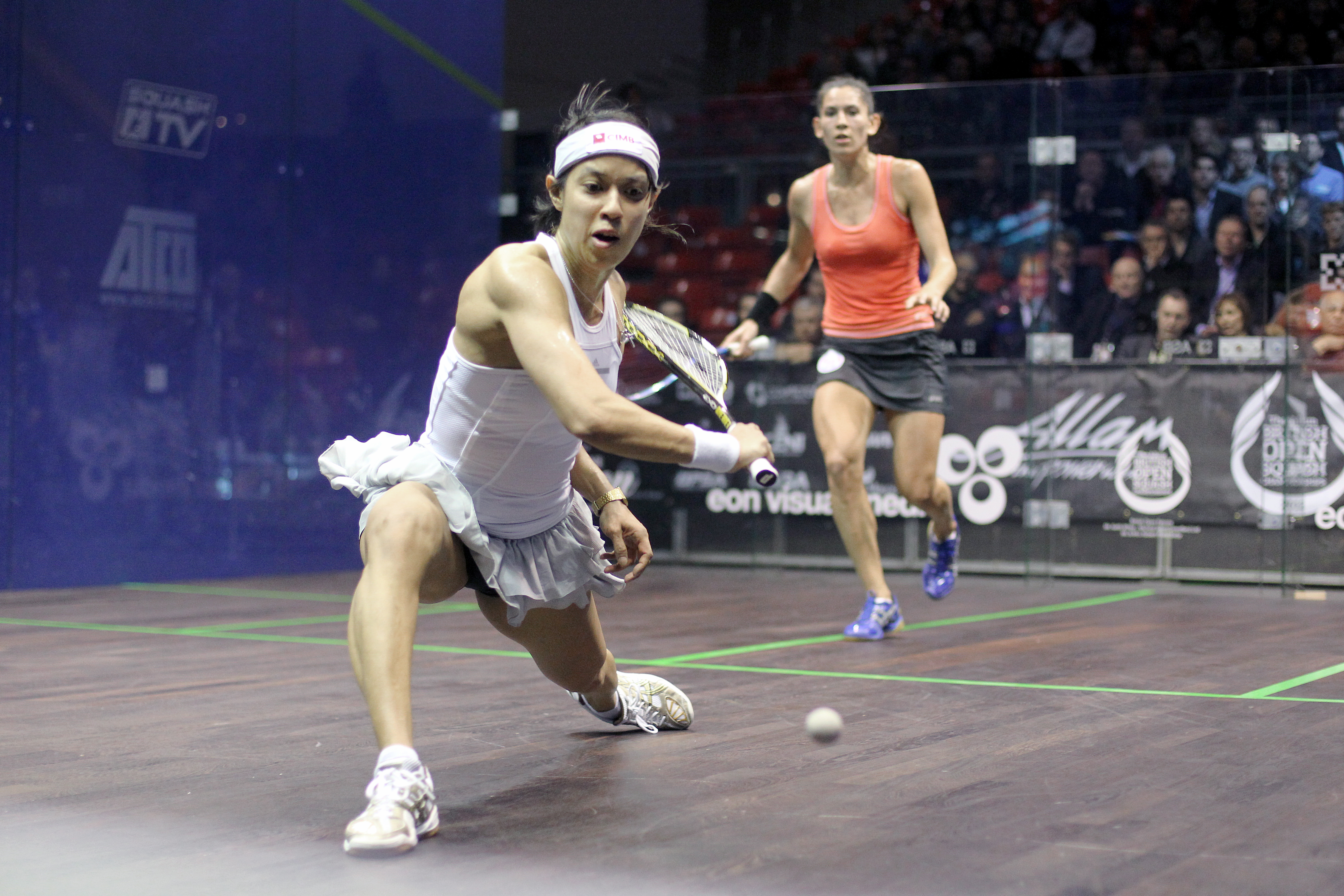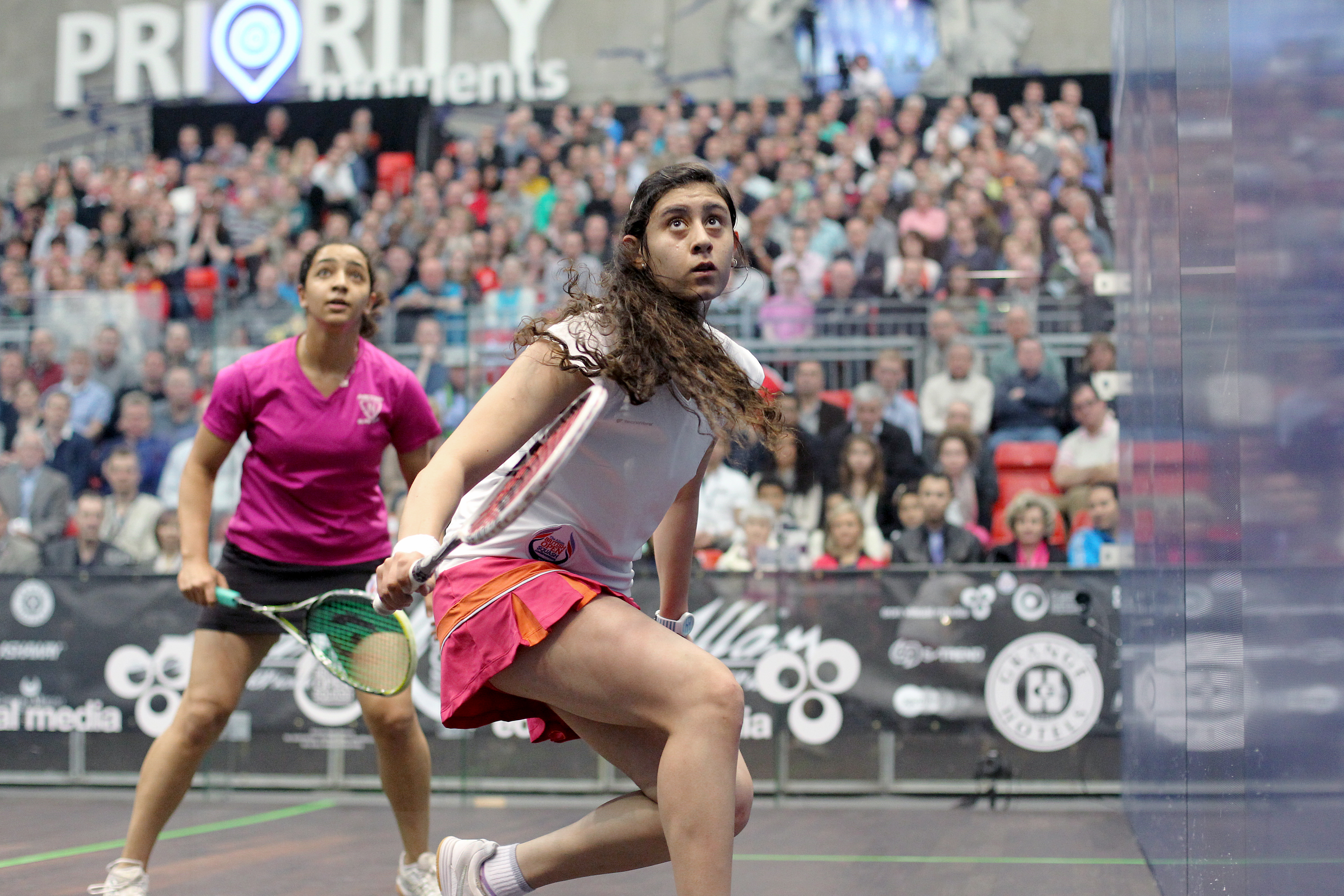
By Richard Eaton
Photos by Steve Line/squashpics.com
The next new world number one has announced herself. She will get to the top within three years. In doing so she will depose the highest profile woman the sport has ever seen.
So says Amir Wagih, the Egyptian head coach. It is true that Wagih is not afraid of taking one or two liberties in order to promote his players, but after what happened at a hearteningly and imaginatively revived British Open you have to say his prediction looks plausible.
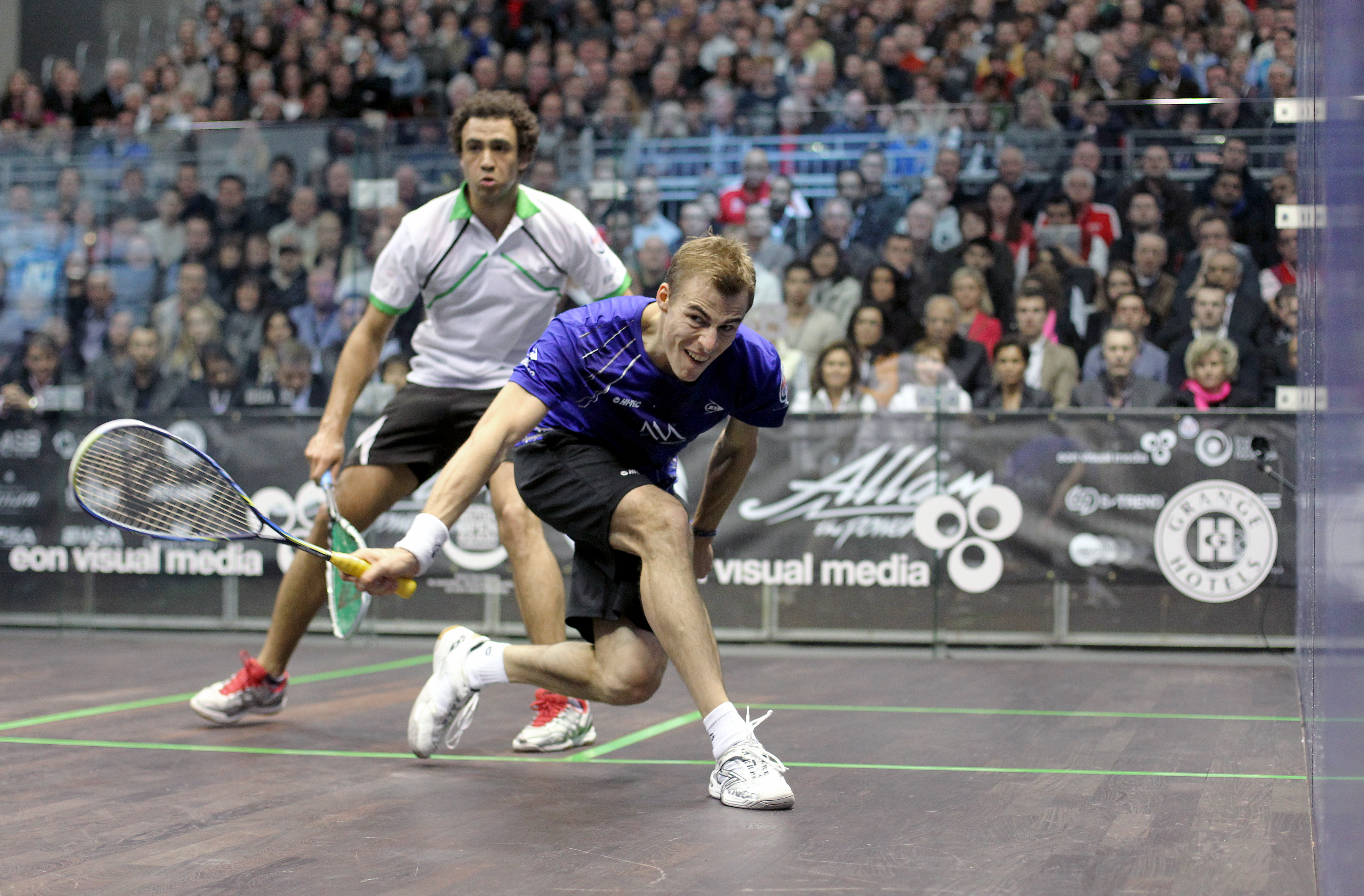
Nour El Sherbini, at 16, became the youngest player ever to have reached the final of the world’s oldest tournament, bettering the record of Jahangir Khan, who was 17 when contesting a famous showdown with the great Geoff Hunt back in 1981. Sherbini also became the first Egyptian woman ever to have reached a British Open final.
She really looked the part. Tall and dominating, hard-hitting and creative, shyly calm and quietly unafraid, she won three successive five-game thrillers, beat three higher rated seeds, and treated each success as if it were just in a day’s work. Yet she is still doing grade ten schoolwork and trying to combine it with life on the tour.
Sherbini also had some imposing moments in a final with the ever-impressive Nicol David even though the teenager was beaten 11-6, 11-6, 11-6. That was something which David herself rather generously acknowledged.
The six times World Open champion had good reasons to feel she could. She has probably never played better all through a tournament than this, and the success filled the only significant gap in David’s tremendous list of titles. So could Sherbini really supersede her any time soon?
David seemed to think it was possible. “Nour is an amazing player, and she played some amazing strokes,” she volunteered. “It was three-love but it wasn’t easy. She’s only 16-years old and she’s on the way up. I have to go home and work on my game, because she’s definitely coming up.”
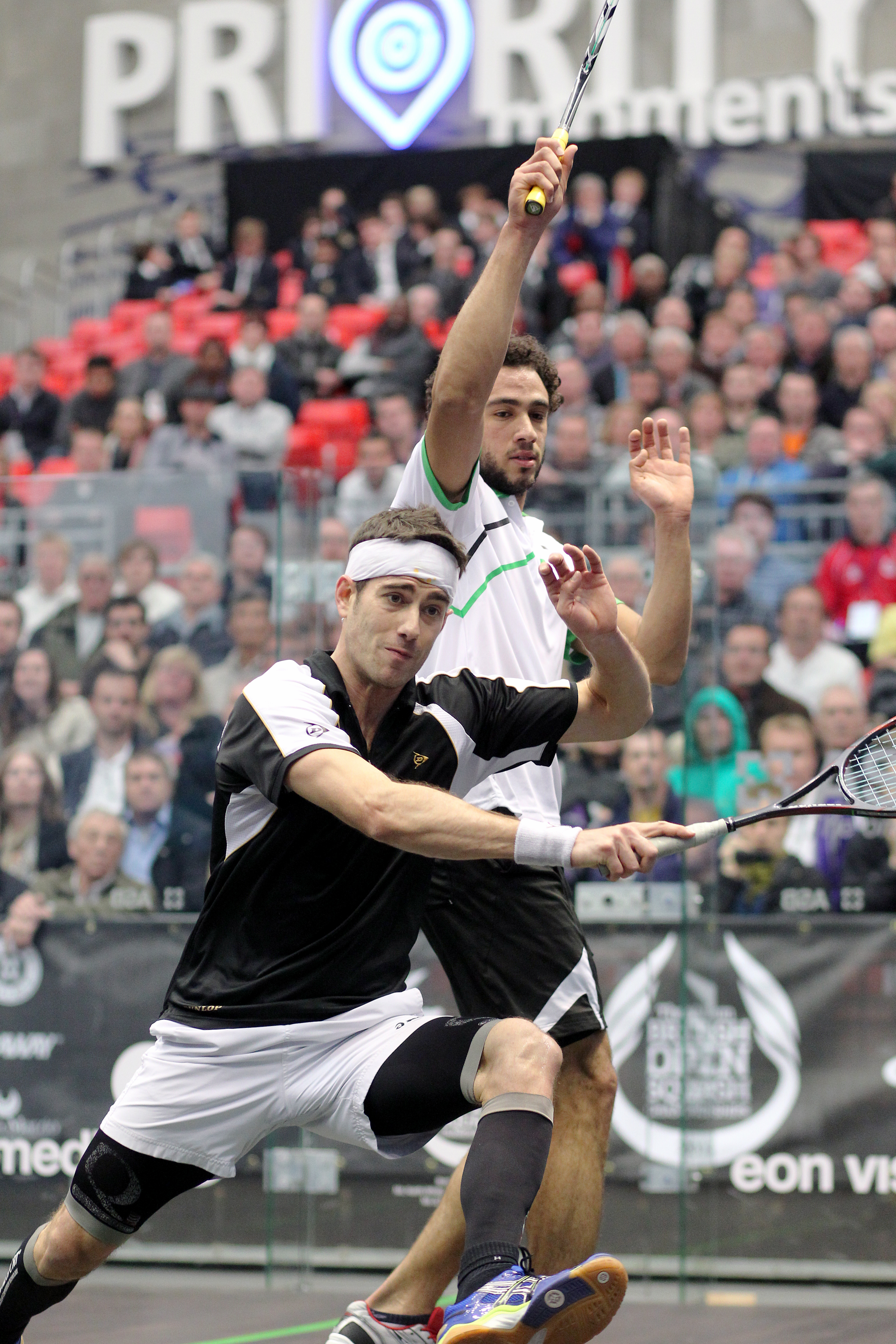
Soon Sherbini will quit school, and bigger advances may follow. David will soon be 29, approaching the mature years of her career. Against that the World Open record-holder has never been fitter, nor better. Once she used to apply pressure mostly by her speed. Now she applies it in different ways.
David has made herself into a decent volleyer, forced herself to be more proactive with a nimble short game, and be- come cleverer and more varied in mixing the short and the long games.
The Malaysian also seems mentally stronger than she was. This is absolutely vital, for no woman in the history of the game has had greater pressure of expectations than David, a national super-heroine and role model for women throughout much of Asia.
She seems to have sailed into calmer waters now. She is certainly different from the tension-laden player who was sunk by Madeline Perry at the last British Open, three years ago in Manchester.
It all suggests David may well maintain high standards well into her thirties. How long she does that may depend on the fate of squash’s Olympic bid next year, for David’s greatest remaining ambition is to carry on to a medal challenge at the 2020 Games.
The British Open was full of talk about the possibility of this. The venue was only four miles and two months from the opening ceremony of the London 2012 Games. Originally called the Millennium Dome it was a spectacular white elephant in 2000. Rebranded as the O2 arena, it now claims to rival Madison Square Garden as the world’s most popular entertainment venue.
Its twelve 100-meter high masts with 70 kilometers of cabling have made it such a familiar sight on the south bank of the Thames that its road-sign image have become an icon well-known enough for use without words.
This riverside venue thus became another illustration of squash’s very special claim that its courts can be assembled and photographed in front of any landmark in an Olympic bidding city, with unique promotional effect. David repeated this promo mantra and her words traveled on news agency wires around the world.
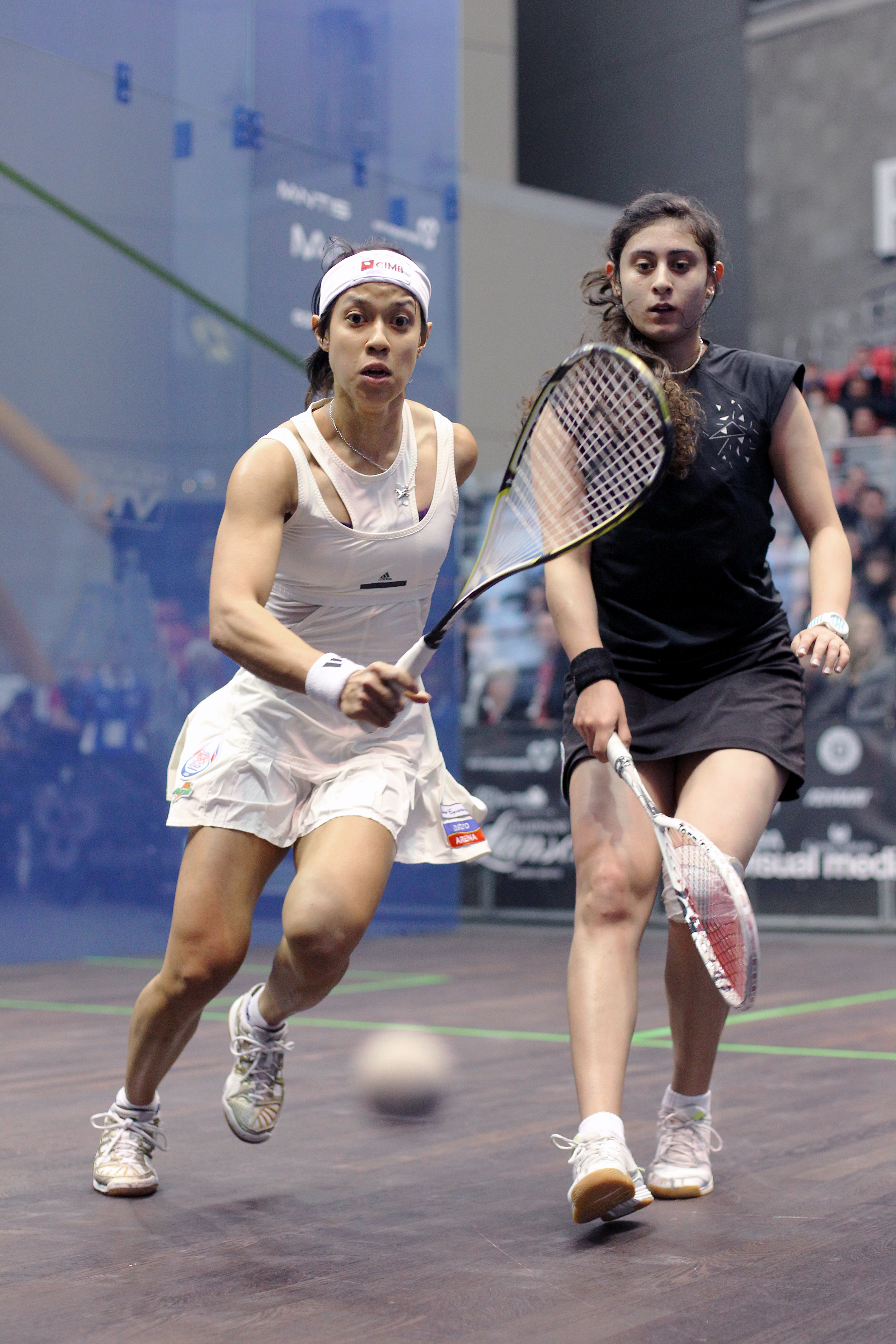
Some important people agreed with them. As august a British body as the All-Party Parliamentarian Leisure Group did too. It included two members of the House of Commons and two of the House of Lords, very different politicians all appearing at the British Open in rare, sweet- talking agreement. They would, they suggested, lobby the IOC on squash’s behalf.
Another promotional contribution came from Nick Matthew, the men’s champion. The Englishman got his friend Colin Jackson, a former Olympic silver medal winning athlete, to come into the court alongside him and to say flattering things. “It’s amazing to watch the top guys in action,” Jackson felt. “As an athlete myself, I have an enormous respect for them and simply can’t understand why squash is not in the Olympics.”
Matthew did indeed continue to amaze. His performance in an 11-9, 11-4, 11-8 win in the final over Ramy Ashour, probably the unofficial favorite, was close to perfection, and made him the first Englishman ever to win the British Open title three times.
Matthew crafted impeccable accuracy with a steely discipline, and supplemented it with beautifully balanced movement. Together these qualities enabled him to contain the world’s most dangerous shot-maker just enough to claw back from a 6-8 deficit to win the first game. That was an important recovery.
The second game immediately showed it. Ashour’s error rate increased, which encouraged Matthew to tighten his accuracy and discipline still further. He advanced more quickly, and when Ashour changed tack in the third game and played less flamboyantly, Matthew responded again, unleashing a range of fine attacking weapons that punished his frustrated opponent. They were weapons which, until two or three years ago, the 32-year-old had not seemed to possess.
True, there were 15 tins from Ashour which, superficially at least, appeared like indifferent errors. True too, Ashour did not play with the exceptional freedom of his semifinal with James Willstrop the day before. But Matthew’s tactical excellence played a big part in ensuring this happened. The outcome was not just, or even principally, about Ashour’s erratic faults.
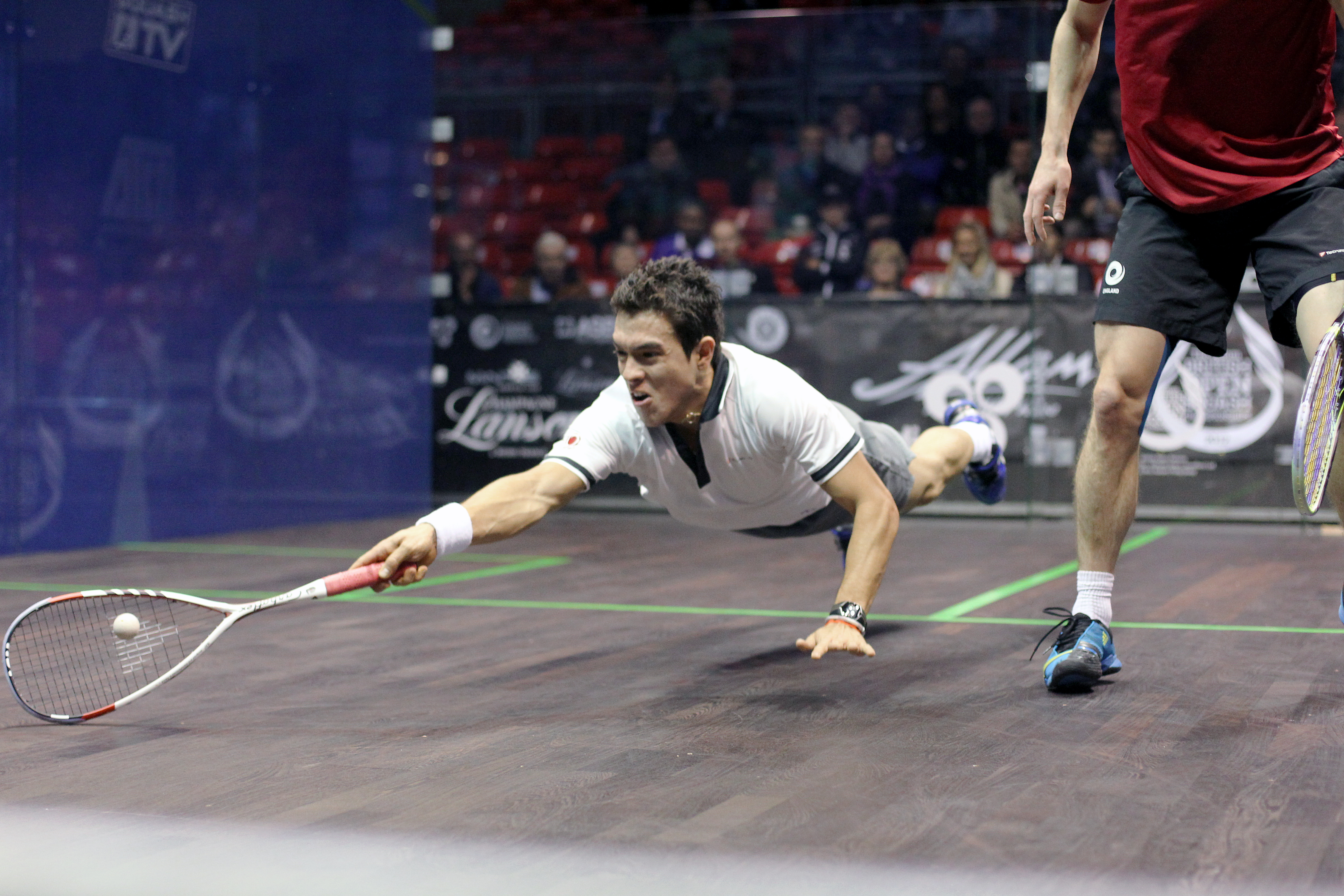
One writer who suggested this analysis annoyed Matthew, who twittered his annoyance. “I am really pissed off with it— it’s not a fair report at all,” the new triple titleholder wrote.
Modern media can be fun, but they can also be harmful if they are simultaneously plausible and ill-judged. One blogger even suggested the men’s draw might have been fixed because Ashour landed a quarterfinal with Amr Shabana, four times a world champion, and then a semi with world number one Willstrop, while Matthew faced no one who might seriously challenge for the title.
This was absurd. Nor did the week’s schedule unravel so obviously in Matthew’s favor, as other on-line writers more rationally suggested. Instead it was Ashour who had had a day’s rest before the quarterfinals, which meant that for him the final was only his third match on the trot. For Matthew it was his fourth. He labored a bit in the first two, but typically got better and better.
Afterwards Matthew was nostalgic and almost tearful. “When I was a kid I went with my family to watch Jahangir at the British Open at Wembley,” he said. “Who would have thought that I would have been able to win it myself, three times?”

Ashour’s defeat prevented him from becoming the first Egyptian in 46 years to win the British Open, since the famous Ahmed Aboutaleb did it. That is a very surprising statistic given the number of exceptional squash players (Ibrahim Amin, Gamal Awad, Ahmed Barada, Amr Shabana) to have emerged from the land of the pharaohs.
Despite this Ashour showed himself by far the most charismatic, brilliant and marketable male player in the sport. Fit again after lengthy hamstring problems, faster than he has ever been, and crazily and cheerfully and amusingly voluble, Ashour chose his encounter against the unlucky Willstrop to unleash far and away the most brilliant performance of any of the tournament’s 62 matches.
The world number one from England had hoped passionately that he might win a rematch in the final against his nemesis, Matthew, and berated himself strongly for failing to maintain his usually excellent length during his 8-11, 11-6, 11-6, 11-8 loss to Ashour. There was some validity to the self-criticisms. But almost never has anyone taken advantage so stunningly as Ashour.
Often within a single rally he would run the length of the court three or four times, and still win it. He would defend for breathtakingly long periods of time. At other times he would cut short the exchanges with volleys that hurtled as if magnetized to the nick. Once he made a huge dive that appeared from nowhere to make a back wall boast while still airborne—and then got up to make a kill that carried him to match point. Such spectacular unorthodoxy could have harried the most orderly of opponents into untidiness.
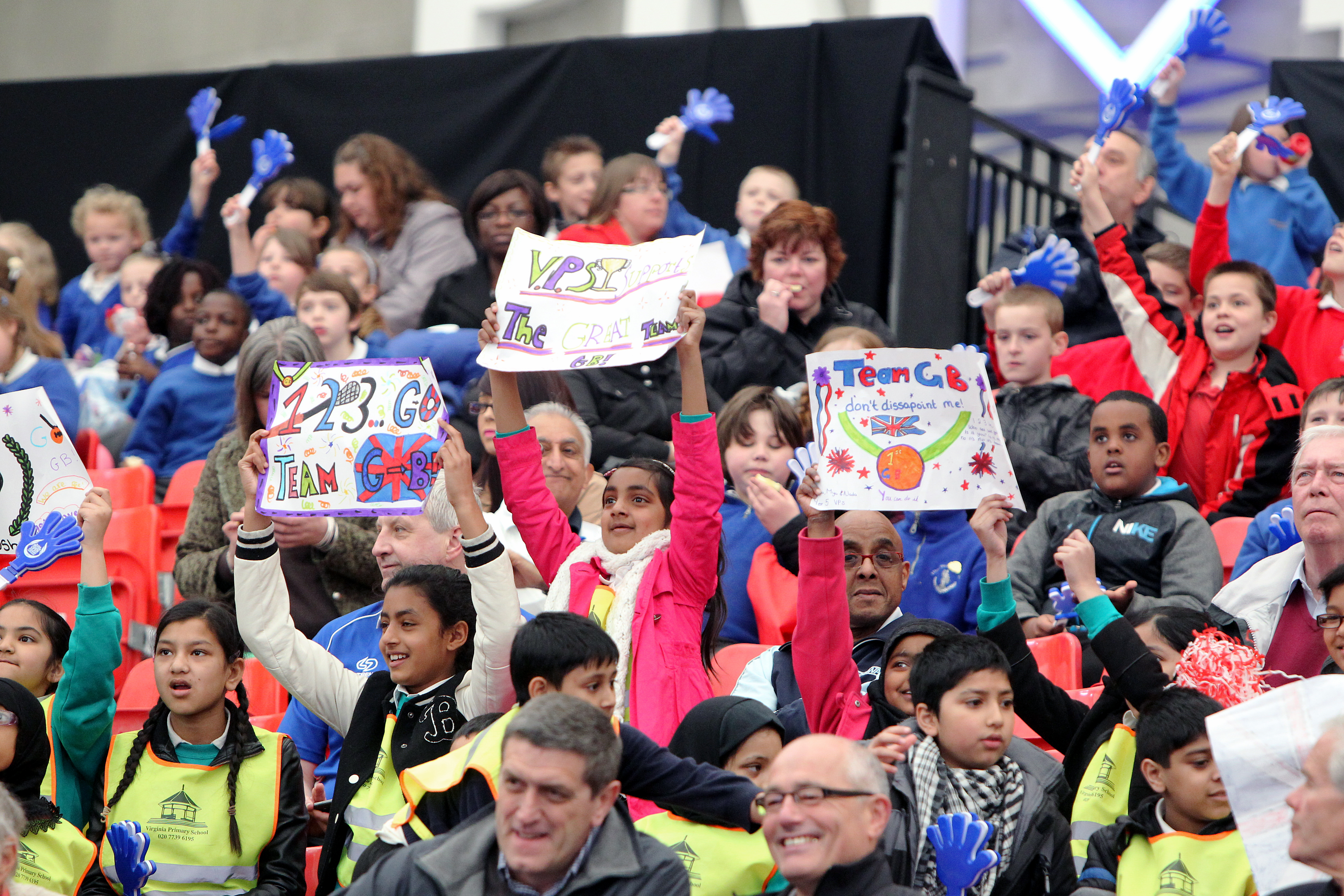 The Egyptian also delivered nearly all of the tournament’s most extraordinary quotes. Once he volunteered that he was “insane,” and then admitted that “there are a lot of crazy elements in my head.“ He also said, “if you think about it too much you get stuck there—or you can try to find a soothing spot. I try to push away the bad things and be focused. Other players maybe handle it better. Maybe I am too emotional.” No one agreed, but most people laughed.
The Egyptian also delivered nearly all of the tournament’s most extraordinary quotes. Once he volunteered that he was “insane,” and then admitted that “there are a lot of crazy elements in my head.“ He also said, “if you think about it too much you get stuck there—or you can try to find a soothing spot. I try to push away the bad things and be focused. Other players maybe handle it better. Maybe I am too emotional.” No one agreed, but most people laughed.
The last remark was uttered after Ashour’s 11-8, 12-10, 5-11, 1-11, 11-4 quarterfinal win over his compatriot Shabana, who had talked of making one last bid for the British Open title that has always eluded him. But the younger Cairene was too fast and, when it mattered, too destructive.
On another occasion Ashour said that how he plays “depends on what’s in my head. And I can’t tell you what that is— there are too many things.” Smiles again became laughter when he complained that it was “hard to receive information from a coach because my head is too crowded.”
These verbal eccentricities followed another extraordinary match in which Ashour came from two games down to win another five-gamer, this time against the resilient Borja Golan, the best player ever to come from Spain.
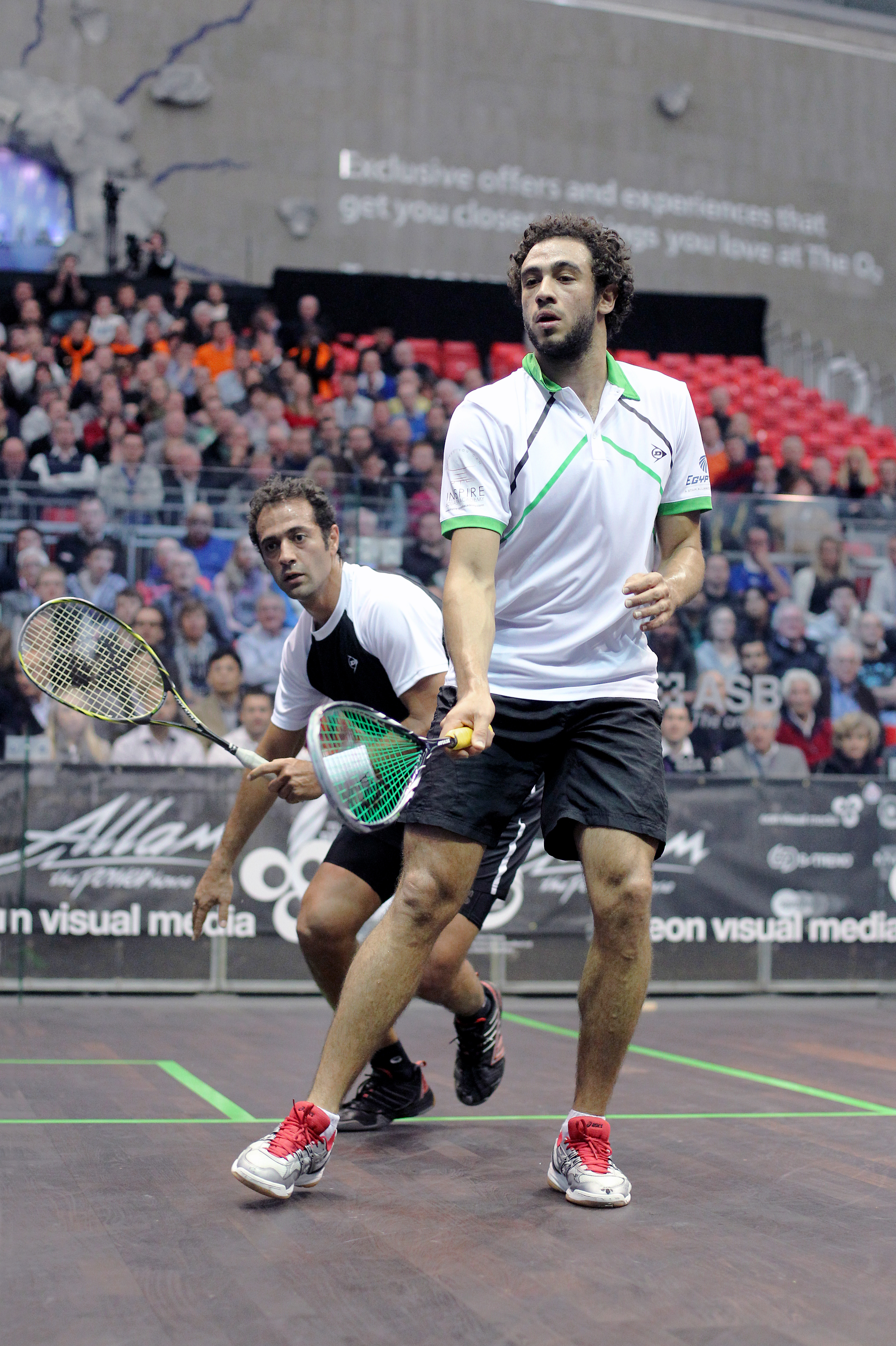
It was a narrow escape. Instead it was another crowd pleaser who was the victim of the tournament’s biggest up- set. Gregory Gaultier, the second-seeded former world number one from France, who looked in perfectly good form, led 6-4 in the fourth game of his quarterfinal against Peter Barker, the third best Englishman, and still somehow lost 10-8, 2-11, 7-11, 11-9, 11-6.
Gaultier had been the better player for much of the match but took two heavy tumbles after unnecessary collisions and once came out of the court angrily to confront the referee. That followed a controversial rally in which Barker got back to 9-9 in the fourth game, but had been played with the court door slightly open.
Gaultier felt this required the point to be replayed, but the officials thought otherwise. Thereafter the former British Open champion from Aix-en-Provence became increasingly unsettled during an unexpected climax in which Barker was the more tenacious and strong-minded of the two.
The women’s event also delivered its share of well-contested matches. There was a lively comeback from two games down by Dipika Pallikal against Omneya Abdel Kawy, the former World Open finalist from Egypt, even though the 14th-seeded Indian was upset at having a conduct stroke awarded against her in the fourth game.
Even more dramatically Kasey Brown, the last person to beat David (in the US Open), missed two match points during a 11-7, 11-2, 4-11, 6-11, 13-11 first-round loss to Jaclyn Hawkes, the unseeded New Zealander. One of them saw the eighth-seeded Australian appeal for a let, perhaps hoping for a penalty stroke, only to receive a “no let”.
No video reviews were available in the women’s first round, which was held at St Georges Hill club about 30 miles away from the O2 arena. Had they played at the main venue from the start, as did the men, Brown might conceivably have survived.
There were some headline-grabbing women’s encounters too. “King dethrones the queen” was a quip following the victory by Joelle King, the 12th seeded New Zealander, over Rachael Grinham, the Australian who had been British Open champion for two-and-a half years since the tournament had last been played.
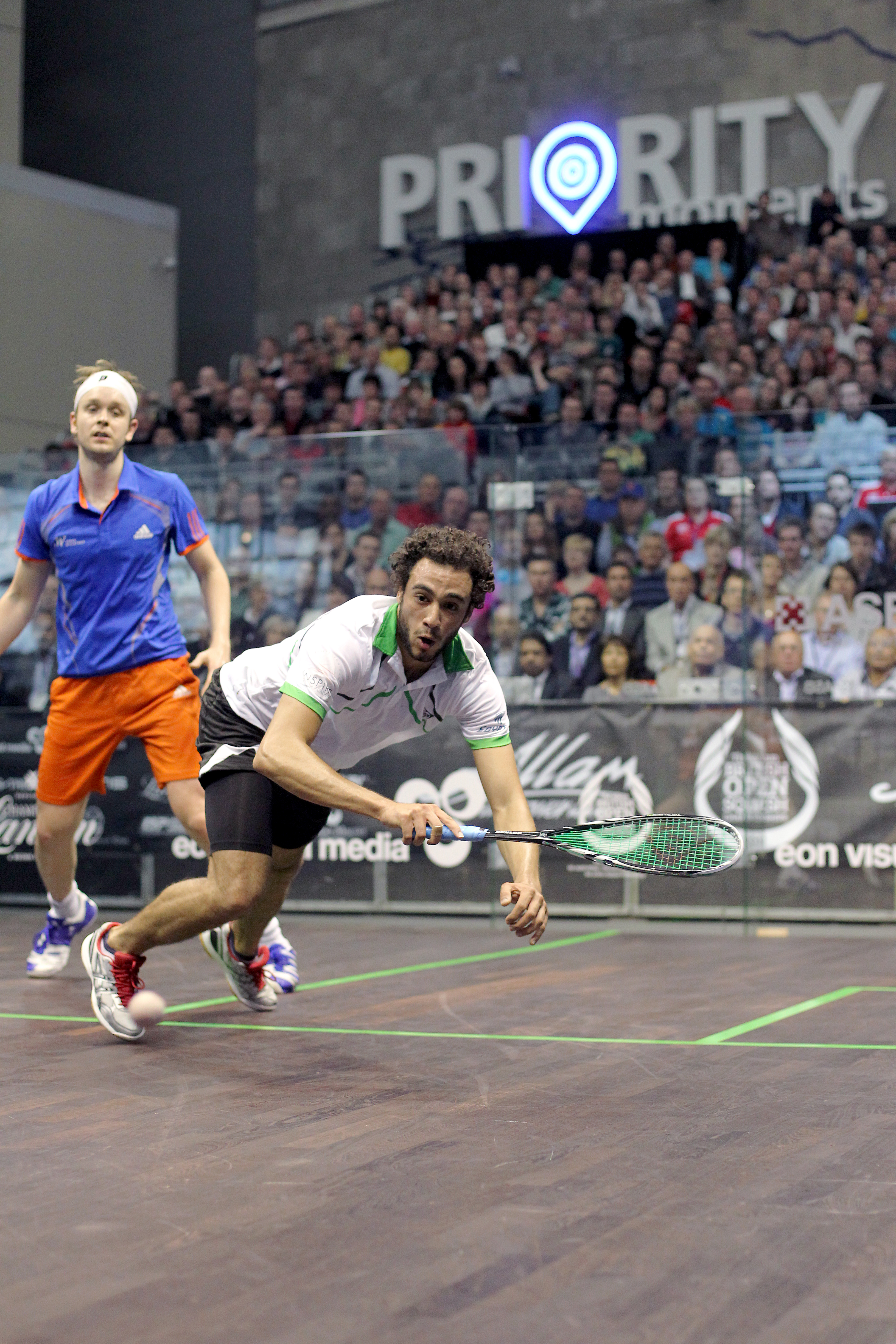
“David blitzes best friend” was another. This was intended as a summary of the champion’s 11-7, 11-7, 11-3 win over Samantha Teran, the Mexican who sometimes comes to stay with David at her adopted home in Amsterdam.
There followed the only short phase of the tournament when David was in any kind of trouble. It lasted about 20 minutes as King used her height strength and reach to batter the ball fiercely and to take the first game of their quarterfinal.
It briefly brought visions of what another tall Kiwi, Shelley Kitchen, had done when she out-hit David in the World Open in Madrid five years ago. But King’s power faded fast with David taking the last 14 points in an 8-11, 11-3, 11-4, 11-0 win.
The favorite carried the momentum into a straight games win over Laura Massaro, the third-seeded Englishwoman who overcame David in both Cleveland and Singapore last year, making her the closest thing to a rival.
Earlier Massaro had to fight hard to survive in five games against Latasha Khan, the lady from Seattle who was a top-20 player a decade ago and was still good enough to qualify for the main draw of a World Series platinum event. Her fellow American, Amanda Sobhy, the former world junior champion, was less pleased with her performance in an 11-6, 19-17, 11-8 loss to Raneem El Weleily, the fifth- seeded Egyptian.
“The Queen of shanks,” was what Sobhy called herself for her mistakes, but actually the defeat was not so much of a let-down as it may have felt. The still-improving 23-year-old Weleily was good enough to beat the second-seeded Jenny Duncalf in straight games as well, and would have become the new world number two had she not lost to Sherbini in five games. Sobhy should have plenty of time to make up the gap between she and Sherbini or Weleily after she has finished her degree at Harvard.
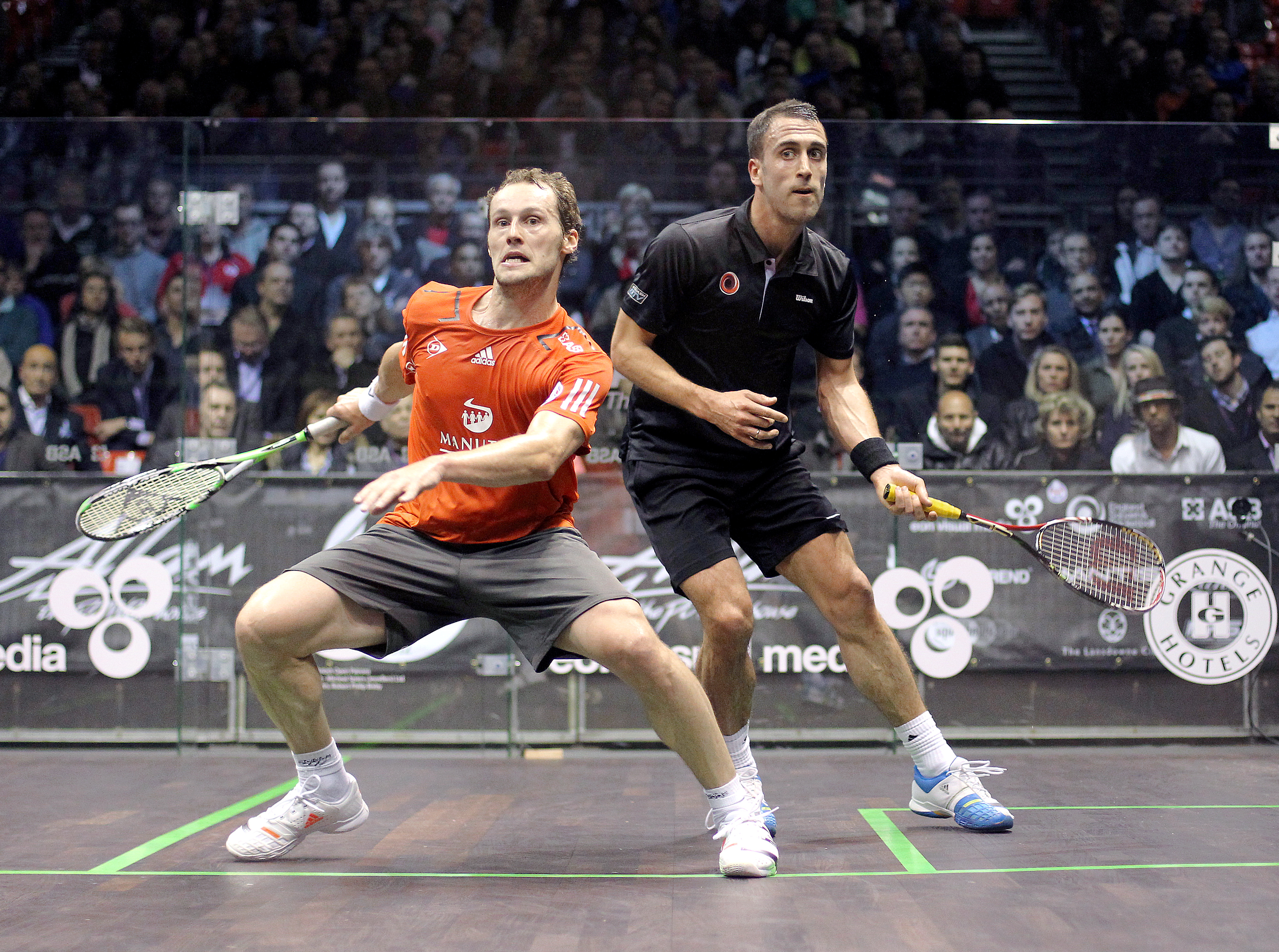
There were two notable improvers. One was Maria Toor Pakay, a 21-year-old from Peshawar—the frontier city of the legendary Khan dynasty—who became the first Pakistan-born woman ever to make a British Open main draw by beating Emily Whitlock, the 17-year-old British junior open champion from England, by 11/5, 4/11, 8/11, 11/6, 11/7 in the last round of the qualifying.
The other was Anne Au, the seventh seed from Hong Kong, who became the first Chinese quarterfinalist in a major event after beating Alison Waters, the former world number three from England, in five games. Au almost made further progress, only losing in five games to El Sherbini.
The intelligent left-hander is markedly fitter than she was, partly because she felt the development of the women’s game has been accelerating and that she needed to respond. That sparked her decision to go part-time with the later stages of her business management degree at Hong Kong polytechnic. There are more physically strong players on tour than three years ago, Au said.
The number of hard-fought matches—five first round five-gamers and four in the second round—indicate that Au is probably right. The women’s game is getting tougher, which is a hopeful sign.
So was the colorful and encouraging revival of a tournament that had once been the most famous in squash history and which had seemed for a couple of years to have been consigned to that history.
It has been rejuvenated thanks to a sponsorship from an Anglo-Egyptian multi-millionaire, Essam Allam, who arrived in Britain 40 years ago as a political refugee from President Nasser and made his fortune from engineering.
Allam is a squash enthusiast who will stay with the old tourney for two more years in the hope of reestablishing it permanently. This Egyptian did not fall at the final hurdle.


